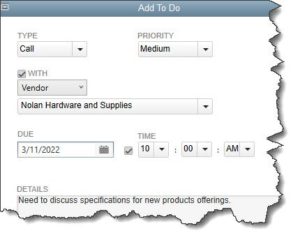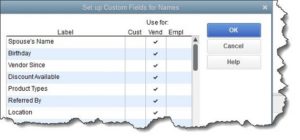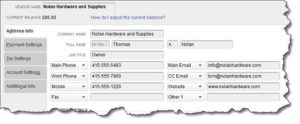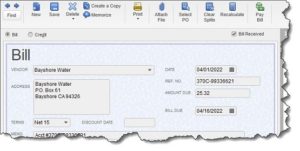Miss last month's newsletter? No problem. We keep the last 8 months of newsletters here for you to read.
QSBS
Small Business
Tax Tips
Any accounting, business or tax advice contained in this communication, including attachments and enclosures, is not intended as a thorough, in-depth analysis of specific issues, nor a substitute for a formal opinion, nor is it sufficient to avoid tax-related penalties. If desired, we would be pleased to perform the requisite research and provide you with a detailed written analysis. Such an engagement may be the subject of a separate engagement letter that would define the scope and limits of the desired consultation services.
- 1202 Tax Code
1202 Regulations
Don't Break the Law: Comply with 1202 Regulations
[caption id="attachment_2213" align="alignright" width="300"] 1202 Regulations[/caption]
As a small business owner, you are responsible for complying with all laws and regulations, including 1202. As an employer, it is important to be in compliance with all labor laws. The 1202 regulations specifically govern the hiring of foreign workers. These regulations state that an employer must not hire a foreign worker if the hiring would adversely affect the wages and working conditions of U.S. workers. This article will briefly outline what 1202 is and how it affects you as an Amazon seller.
The 1202 regulations were created in order to protect the wages and working conditions of American workers. The 1202 regulations specifically govern the hiring of foreign workers. If you violate the 1202 regulations, you may be subject to civil and/or criminal penalties. As a small business owner, it is important to be aware of these regulations and to make sure that you are in compliance.
The employer must ensure that the foreign worker is not working in a job that has been designated as hazardous by the U.S. Department of Labor. The employer must pay the foreign worker the same wages and benefits as U.S. workers. Violation of the 1202 regulations can result in civil and/or criminal penalties.
1202 Regulations[/caption]
As a small business owner, you are responsible for complying with all laws and regulations, including 1202. As an employer, it is important to be in compliance with all labor laws. The 1202 regulations specifically govern the hiring of foreign workers. These regulations state that an employer must not hire a foreign worker if the hiring would adversely affect the wages and working conditions of U.S. workers. This article will briefly outline what 1202 is and how it affects you as an Amazon seller.
The 1202 regulations were created in order to protect the wages and working conditions of American workers. The 1202 regulations specifically govern the hiring of foreign workers. If you violate the 1202 regulations, you may be subject to civil and/or criminal penalties. As a small business owner, it is important to be aware of these regulations and to make sure that you are in compliance.
The employer must ensure that the foreign worker is not working in a job that has been designated as hazardous by the U.S. Department of Labor. The employer must pay the foreign worker the same wages and benefits as U.S. workers. Violation of the 1202 regulations can result in civil and/or criminal penalties.
How do the 1202 Regulations Affect Small Business Owners
Small business owners need to be aware of the 1202 Regulations and how they may affect their business. The regulations are in place to protect the wages and working conditions of U.S. workers. These regulations affect small business owners who hire foreign workers. Under the 1202 regulations, an employer cannot hire a foreign worker if the hiring would adversely affect the wages and working conditions of U.S. workers. This includes workers who are already employed by the employer. The regulations also state that an employer must not displace a U.S. worker by hiring a foreign worker. The regulations are designed to protect U.S. workers from being replaced by foreign workers who are willing to work for lower wages. The regulations also ensure that foreign workers are not hired to fill positions that could be filled by qualified U.S. workers.What are the Consequences for Violating the 1202 Regulations
Small business owners who violate the 1202 Regulations can face significant consequences, including fines and jail time. Fines can range from $1,000 to $10,000 per violation. Jail time is possible for up to one year per violation. These penalties can be increased if the employer is found to have knowingly violated the regulations. You can also be required to pay back wages to any workers who were adversely affected by the violation. The best way to avoid these penalties is to ensure you are in compliance with the 1202 Regulations. The 1202 regulations are important for small business owners to be aware of. These regulations can have a significant impact on your business if you are not in compliance. Make sure you understand the regulations and how they apply to your business. This will help you avoid any penalties and keep your business in compliance.Qualified Small Business Stock Inc https://www.google.com/maps?cid=1473137287620394883814855 S 46th St., Phoenix, AZ 85044(480) 734-3758Small Startup Company Stocks
What to Watch Out for When Investing in Small Startup Company Stocks
[caption id="attachment_4505" align="alignright" width="300"] Small Business Investment[/caption]
When investing in stocks, it's important to do your research first. You want to make sure you're getting a good return on your investment, and not taking too much of a risk. When investing in small startup company stocks, there are a few things you need to watch out for. Many of these companies are unproven and may not be around for long. Their stocks may be overvalued, and you could end up losing money if the company goes under. Make sure you know what you're doing before you invest, and don't put all your eggs in one basket.
When you're looking to invest in a small startup company, it's important to be aware of the risks involved. Many small startups don't have the solid financial backing or management team that larger companies do, which can make them more volatile and prone to failure. That said, there can also be big rewards for investors who are willing to take on the risks. Here are a few things to watch out for when considering investing in a small startup company:
Small Business Investment[/caption]
When investing in stocks, it's important to do your research first. You want to make sure you're getting a good return on your investment, and not taking too much of a risk. When investing in small startup company stocks, there are a few things you need to watch out for. Many of these companies are unproven and may not be around for long. Their stocks may be overvalued, and you could end up losing money if the company goes under. Make sure you know what you're doing before you invest, and don't put all your eggs in one basket.
When you're looking to invest in a small startup company, it's important to be aware of the risks involved. Many small startups don't have the solid financial backing or management team that larger companies do, which can make them more volatile and prone to failure. That said, there can also be big rewards for investors who are willing to take on the risks. Here are a few things to watch out for when considering investing in a small startup company:
- The company's financials: It's important to take a close look at the company's financial situation before investing. Make sure they are not overvalued and that there is a solid plan in place for how the company will make money.
- The management team: A strong management team is essential for any company, but it's especially important for startups. Make sure the team has a good track record and is experienced in running a business.
- The product or service: What is the company offering, and is there a market for it? Make sure you understand the product or service and believe in its potential before investing. This is especially important for tech startups, as many products never make it to market.
- The risks involved: Investing in a small startup is a risky proposition, so make sure you understand the risks involved before putting any money down. Be prepared to lose your investment, and don't invest more than you can afford to lose.
- The exit strategy: What is the company's plan for eventually selling or going public? Make sure you understand the exit strategy and are comfortable with it before investing. This is important because many startups never make it to an exit.
- The competition: What other companies are offering similar products or services? Make sure you understand the competitive landscape and believe the company has a chance to succeed. This is especially important for tech startups, as many new products or services fail to find a market.
Qualified Small Business Stock Inc https://www.google.com/maps?cid=1473137287620394883814855 S 46th St., Phoenix, AZ 85044(480) 734-37581202 Stock Requirements
The Basics of 1202 Stock Requirements for a Small Business
[caption id="attachment_4504" align="alignright" width="300"] Small Business Services[/caption]
A 1202 stock requirement is a way of ensuring that your small business has the inventory necessary to continue operations. This requirement mandates that you maintain a specific level of inventory, usually in the form of raw materials or finished goods, in order to keep your business running smoothly. There are a few different ways to comply with a 1202 stock requirement, but the most common is to maintain a minimum level of inventory on hand at all times. This ensures that you have the materials necessary to meet customer demand and keep your business running smoothly.
When starting a small business, there are many things to keep in mind in order for it to be successful. One of the most important is having the proper 1202 stock. This type of stock is essential for businesses that want to go public, as it allows them to do so with less paperwork and hassle. Additionally, it can also help businesses secure loans and other forms of financing. If you're thinking of starting a small business, make sure you are familseciar with the basics of 1202 stock requirements.
To be eligible for 1202 stock, a company must be organized as a C corporation and have less than $50 million in assets. The company must also use the 1202 stock for qualified small business purposes, which include purchasing, constructing, or improving qualified property. Qualified property must be used for the active conduct of a trade or business, and it must be depreciable or amortizable under 1202 tax code. Finally, the company must have a valid stock option plan in place.
There are a few things to keep in mind when complying with a 1202 stock requirement. First, you will need to maintain accurate records of your inventory levels. This includes both the quantity of inventory on hand and the value of that inventory. Second, you will need to have a plan in place for how you will replenish your inventory as it is sold. This may include setting up a system for reordering inventory from suppliers or manufacturing goods on-site. Finally, you will need to monitor your inventory levels closely to ensure that you are meeting the 1202 stock requirement.
This may involve regular inventory counts or using software to track inventory levels. By following these tips, you can ensure that your small business is in compliance with the 1202 stock requirement. If you're not sure whether your company meets all of the eligibility requirements for 1202 stock, it's a good idea to speak with an accountant or tax advisor. They can help you determine whether your company qualifies and, if so, how to take advantage of this opportunity.
1202 stock can be a great way to reduce the paperwork and hassle associated with taking your small business public. If you're thinking of starting a small business, make sure you are familiar with the basics of 1202 stock requirements. With a little planning and preparation, you can ensure that your business is compliant with all the necessary regulations.
Qualified Small Business Stock Inc https://www.google.com/maps?cid=1473137287620394883814855 S 46th St., Phoenix, AZ 85044(480) 734-3758
Small Business Services[/caption]
A 1202 stock requirement is a way of ensuring that your small business has the inventory necessary to continue operations. This requirement mandates that you maintain a specific level of inventory, usually in the form of raw materials or finished goods, in order to keep your business running smoothly. There are a few different ways to comply with a 1202 stock requirement, but the most common is to maintain a minimum level of inventory on hand at all times. This ensures that you have the materials necessary to meet customer demand and keep your business running smoothly.
When starting a small business, there are many things to keep in mind in order for it to be successful. One of the most important is having the proper 1202 stock. This type of stock is essential for businesses that want to go public, as it allows them to do so with less paperwork and hassle. Additionally, it can also help businesses secure loans and other forms of financing. If you're thinking of starting a small business, make sure you are familseciar with the basics of 1202 stock requirements.
To be eligible for 1202 stock, a company must be organized as a C corporation and have less than $50 million in assets. The company must also use the 1202 stock for qualified small business purposes, which include purchasing, constructing, or improving qualified property. Qualified property must be used for the active conduct of a trade or business, and it must be depreciable or amortizable under 1202 tax code. Finally, the company must have a valid stock option plan in place.
There are a few things to keep in mind when complying with a 1202 stock requirement. First, you will need to maintain accurate records of your inventory levels. This includes both the quantity of inventory on hand and the value of that inventory. Second, you will need to have a plan in place for how you will replenish your inventory as it is sold. This may include setting up a system for reordering inventory from suppliers or manufacturing goods on-site. Finally, you will need to monitor your inventory levels closely to ensure that you are meeting the 1202 stock requirement.
This may involve regular inventory counts or using software to track inventory levels. By following these tips, you can ensure that your small business is in compliance with the 1202 stock requirement. If you're not sure whether your company meets all of the eligibility requirements for 1202 stock, it's a good idea to speak with an accountant or tax advisor. They can help you determine whether your company qualifies and, if so, how to take advantage of this opportunity.
1202 stock can be a great way to reduce the paperwork and hassle associated with taking your small business public. If you're thinking of starting a small business, make sure you are familiar with the basics of 1202 stock requirements. With a little planning and preparation, you can ensure that your business is compliant with all the necessary regulations.
Qualified Small Business Stock Inc https://www.google.com/maps?cid=1473137287620394883814855 S 46th St., Phoenix, AZ 85044(480) 734-37581202 IRC
1202 IRC for Small Business: What is It and How can I Use It?
[caption id="attachment_4503" align="alignright" width="300"] Accounting Services[/caption]
Small businesses can use 1202 IRC to reduce their income tax liability. 1202 IRC is a small business program that offers income tax credits for businesses that invest in research and development. To qualify, businesses must spend money on research and development projects in Canada, and the work must be new, innovative, and have a scientific or technological basis. This article will provide an overview of what 1202 IRC is and how small businesses can use it.
Accounting Services[/caption]
Small businesses can use 1202 IRC to reduce their income tax liability. 1202 IRC is a small business program that offers income tax credits for businesses that invest in research and development. To qualify, businesses must spend money on research and development projects in Canada, and the work must be new, innovative, and have a scientific or technological basis. This article will provide an overview of what 1202 IRC is and how small businesses can use it.
What is 1202 IRC?
1202 IRC is a section of the Internal Revenue Code that allows small businesses to claim a deduction for certain qualified expenses. 1202 provides an incentive for non-corporate taxpayers to invest in small businesses. The section 1202 capital gains exclusion from federal income tax on the sale of small business stock is the underlying purpose of this IRC section. A small business stock held for at least five years before selling will have a portion or all of its realized gains excluded from federal tax. Businesses must meet the requirements specified in order to obtain this benefit. The 1202 IRC allows small businesses to deduct up to $5,000 of their research and development (R&D) expenses. It is important to note that the $5,000 deduction is per tax year, and not per project. This means that if a small business has multiple R&D projects underway, they can deduct up to $5,000 for each one. The 1202 IRC also allows businesses to carry forward any unused deduction to future tax years.Why should small businesses care about it?
Small businesses should care about 1202 IRC because it offers tax credits for investing in research and development. This can be a valuable way to reduce your income tax liability. 1202 IRC is a small business program that offers income tax credits for businesses that invest in research and development. The 1202 IRC was created to encourage businesses to invest in research and development projects in Canada. This is because research and development can lead to new and innovative products or services, which can have a positive impact on the economy.How can small businesses use 1202 IRC?
Small businesses can use 1202 IRC to reduce their income tax liability. The 1202 IRC can be used by small businesses to offset the cost of research and development projects in Canada. This can be a great way to reduce your income taxes, and it can also help you fund new and innovative projects. Your business must meet certain criteria to qualify for 1202 IRC. 1202 IRC is a small business tax credit that can be used to offset income tax liability. If you are looking for ways to reduce your income tax burden, consider investing in research and development projects that meet the requirements of 1202 IRC. By doing so, you can take advantage of this tax credit and improve your bottom line. If you have any questions about IRC 1202 or how to qualify for it, be sure to speak with a qualified tax professional. They can help you determine if your business is eligible and how to maximize the credit.Qualified Small Business Stock Inc https://www.google.com/maps?cid=1473137287620394883814855 S 46th St., Phoenix, AZ 85044(480) 734-37581202 Tax Code
The Pros and Cons of the 1202 Tax Code for Small Businesses
[caption id="attachment_4498" align="alignright" width="300"] Small Business Accounting[/caption]
The 1202 tax code offers small businesses a way to avoid some taxes on the sale of qualified small business stock. This can be beneficial for businesses who are looking to invest in themselves or expand their operations. However, there are some drawbacks to this tax code as well. Let's take a look at the pros and cons of this tax code so you can decide if it's right for your small business.
Small businesses rejoice! The 1202 tax code is finally in effect and it offers a number of benefits for small businesses owners. This new code allows small businesses to deduct up to $5,000 of their income taxes per year. This deduction is available for both sole proprietorships and S-Corporations. This is great news for small businesses who are struggling to make ends meet. However, there are some drawbacks to the 1202 tax code.
Small Business Accounting[/caption]
The 1202 tax code offers small businesses a way to avoid some taxes on the sale of qualified small business stock. This can be beneficial for businesses who are looking to invest in themselves or expand their operations. However, there are some drawbacks to this tax code as well. Let's take a look at the pros and cons of this tax code so you can decide if it's right for your small business.
Small businesses rejoice! The 1202 tax code is finally in effect and it offers a number of benefits for small businesses owners. This new code allows small businesses to deduct up to $5,000 of their income taxes per year. This deduction is available for both sole proprietorships and S-Corporations. This is great news for small businesses who are struggling to make ends meet. However, there are some drawbacks to the 1202 tax code.
PROS:
- The 1202 tax code can help small businesses save money on taxes. This is because small businesses can deduct up to $5,000 of their income taxes per year. Your business will save money on taxes if you are able to deduct this amount.
- The 1202 tax code is available for both sole proprietorships and S-Corporations. This means that more small businesses will be able to take advantage of this tax deduction. Your business does not have to be a certain size or structure in order to qualify.
- The 1202 tax code can help small businesses invest in themselves. This is because the deduction can be used to offset the cost of buying new equipment or expanding operations. You can use the money you save on taxes to reinvest in your business.
- The 1202 tax code can help small businesses create jobs. This is because businesses can use the money they save on taxes to hire new employees. This can help to boost the economy and create new jobs.
- The 1202 tax code can help small businesses attract new investors. This is because businesses can use the deduction to offset the cost of issuing new stock. This can help to attract new investors and raise capital for your business.
CONS:
- The 1202 tax code has some restrictions. For example, your business must have been in operation for at least five years in order to qualify. This can be a problem for businesses that are just starting out.
- The 1202 tax code is only available for businesses that sell qualified small business stock. This means that businesses that do not sell this type of stock will not be able to take advantage of the deduction.
- The 1202 tax code has a maximum deduction of $5,000. This means that businesses will not be able to deduct more than this amount. This can be a problem for businesses that have high tax liability.
- The 1202 tax code is only available for a limited time. The deduction will only be available for tax years 2018 through 2025. This means that businesses will need to plan ahead if they want to take advantage of the deduction.
- The 1202 tax code may not be beneficial for businesses that are not profitable. This is because businesses can only deduct the amount of taxes they owe. If your business is not profitable, you will not be able to take advantage of the deduction.
Qualified Small Business Stock Inc https://www.google.com/maps?cid=1473137287620394883814855 S 46th St., Phoenix, AZ 85044(480) 734-3758

